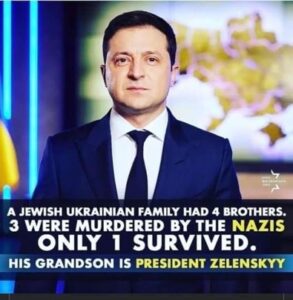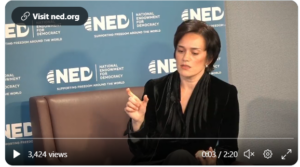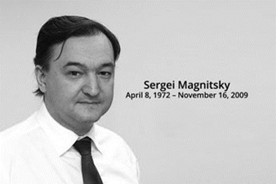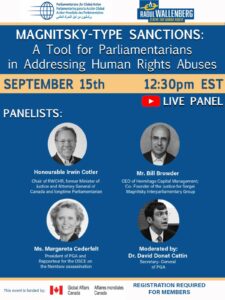Vladimir Putin’s war in Ukraine has exposed weaknesses in the Russian state, from rot in the army to the Kremlin’s authoritarian echo chamber. The war has also hastened Russia’s decline. The country has suffered enormous losses on the battlefield, and it has been cut off from important energy markets and access to critical technology. Does this mean Russia should be ruled out, or at least downgraded, as a threat? Foreign Affairs Deputy Editor Kate Brannen asks analysts Andrea Kendall-Taylor and Michael Kofman (below).
If this is the end of the beginning of the war in Ukraine, Kyiv still faces a long and difficult road ahead, say CSIS analysts Seth G. Jones and Philip G. Wasielewski. Now is the time for the United States to clearly outline a policy that supports Ukraine, provides sufficient arms to help Ukraine retake its own territory, offers economic support to counter Russian energy extortion and start to rebuild Ukraine, and guarantees better transparency and accountability of foreign aid, they insist.
 Former President George W. Bush called Ukraine’s president a “tough dude” on Wednesday, saying he believes Volodymyr Zelenskyy can win the war against Russia — as long as they get the support they need.
Former President George W. Bush called Ukraine’s president a “tough dude” on Wednesday, saying he believes Volodymyr Zelenskyy can win the war against Russia — as long as they get the support they need.
“Absolutely they can win, they’re winning,” he told a conference held at his Dallas-based institute (above). “But they won’t win if the United States and the free world says it’s not worth it anymore.”
“Failure in Ukraine will affect future generations of Americans,” Bush said. “An unstable Europe, a Europe in which a tyrant is on the march, is going to affect our national security.”
“If the United States does not lead, the world will not follow,” he told the conference on “The Struggle for Freedom,” co-sponsored by the National Endowment for Democracy (NED) and Freedom House.
The conference heard a video message from Taiwanese President Tsai Ing-wen, who observed that the gathering “could not have convened at a more significant time” as the world’s democracies are being “challenged on a daily basis.”
Russia’s invasion of Ukraine is “proof that dictatorships will do whatever it takes to achieve their goal of expansionism,” she added. “The menacing behavior of authoritarian regimes should be a wakeup call to all democracies. We must work together to strengthen our resilience and safeguard our values.”
In October, Taiwan’s government announced that it would provide an additional US$56 million in funds to support Ukraine when the Eastern European nation began rebuilding efforts. The pledged funding is still awaiting legislative approval. The government earlier this year raised nearly US$33 million for Ukraine from private donors through the Relieve Disaster Foundation.
”
“Authoritarians are not just oppressing those at home, they are taking their show on the road,” Freedom House’s Nicole Bibbins Sedaca told the Bush Center forum.
And China has exported surveillance technology to 80 authoritarian countries to help them control their citizens, said NED President and CEO Damon Wilson.
“If China should succeed in dominating the commanding heights of technology, AI Quantum computing, control of data, there will be no freedom anywhere in the world,” he added.
The push for negotiations almost seems aimed at blunting Ukraine’s momentum, perhaps out of fear of what a defeated Russia might do, according to Eric S. Edelman and David J. Kramer. Those in the West who disparagingly argue that we are willing to fight to the last Ukrainian echo Putin’s rhetoric and deeply insult Ukrainians, who have been heroically defending their nation, whether we support them or not.
So a Ukrainian victory is possible if we continue to support Ukraine with the weapons it needs and the financial assistance to cover its hemorrhaging budget, they write for American Purpose. Ukrainian victory is in our national interests, to ensure that Putin and his forces never again invade Ukraine or any other neighbor for that matter. Negotiations may, at some point, be necessary, but calls for them now are incredibly counterproductive and damaging to Ukraine.
 Since returning to Russia to protest Putin’s invasion of Ukraine, Vladimir Kara-Murza has been imprisoned, charged with treason and his wife Evgenia (right) has not been allowed to speak to him since April.
Since returning to Russia to protest Putin’s invasion of Ukraine, Vladimir Kara-Murza has been imprisoned, charged with treason and his wife Evgenia (right) has not been allowed to speak to him since April.
But in a series of letters to me from Detention Centre No. 5, Vladimir – who has twice been the victim of a mysterious poisoning – says he has no regrets, because the “price of silence is unacceptable”, the BBC’s Sarah Rainsford reports.
“We all understand the risk of opposition activity in Russia. But I couldn’t stay silent in the face of what’s happening, because silence is a form of complicity,” Vladimir explains in a letter from his cell. He felt he could not stay abroad either. “I didn’t think I had the right to continue my political activity, to call other people to action, if I was sitting safely somewhere else.” RTWT

Credit ESI
At the G20 Summit in Bali, Canadian Prime Minister Justin Trudeau announced additional support for Ukraine and the implementation of targeted Magnitsky sanctions against Russian individuals and entities responsible for Kara-Murza’s imprisonment.
His decision was based on a submission made by the Raoul Wallenberg Centre for Human Rights (RWCHR) whose International Chair Irwin Cotler commended Trudeau and the Canadian government for leading the international community of democracies in “efforts to isolate Russia on the world stage.” Trudeau’s announcement follows the RWCHR’s consistent advocacy calling for initiatives to counter Russia’s criminal aggression against Ukraine and its domestic repression at home, including high-level meetings and expert testimony to the Standing Committee on Foreign Affairs and International Development’s hearing on Russia’s war in Ukraine.
 “There is a distinct Canadian connection to his case and cause, as he was twice poisoned on his return to Moscow after his principled advocacy for Magnitsky legislation before Canadian parliamentary committees,” said Cotler, a longtime friend and colleague of Kara-Murza. “He has also been a principal critic of Russia’s criminal aggression in Ukraine. His safety – and release – must be an urgent priority for Canada and the community of democracies.”
“There is a distinct Canadian connection to his case and cause, as he was twice poisoned on his return to Moscow after his principled advocacy for Magnitsky legislation before Canadian parliamentary committees,” said Cotler, a longtime friend and colleague of Kara-Murza. “He has also been a principal critic of Russia’s criminal aggression in Ukraine. His safety – and release – must be an urgent priority for Canada and the community of democracies.”
Human Rights First, Open Society Foundations, the Raoul Wallenberg Centre for Human Rights, and REDRESS issued Multilateral Magnitsky Sanctions at Five Years, the first-ever multilateral report calling for the more effective use of Magnitsky-style sanctions to address human rights abuses and corruption. Watch the launch event for the report here.
The war in Ukraine could be a unifying force for the world’s democracies, said Lech Walesa (below), the former president of Poland and Nobel Peace Prize laureate.
“When we destroyed the Soviet Union and we destroyed communism, then we lost that common ground. So, the question today is: Can we find something that we do have in common?”







